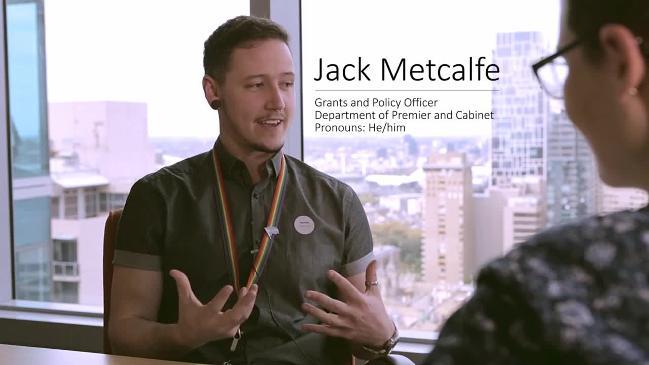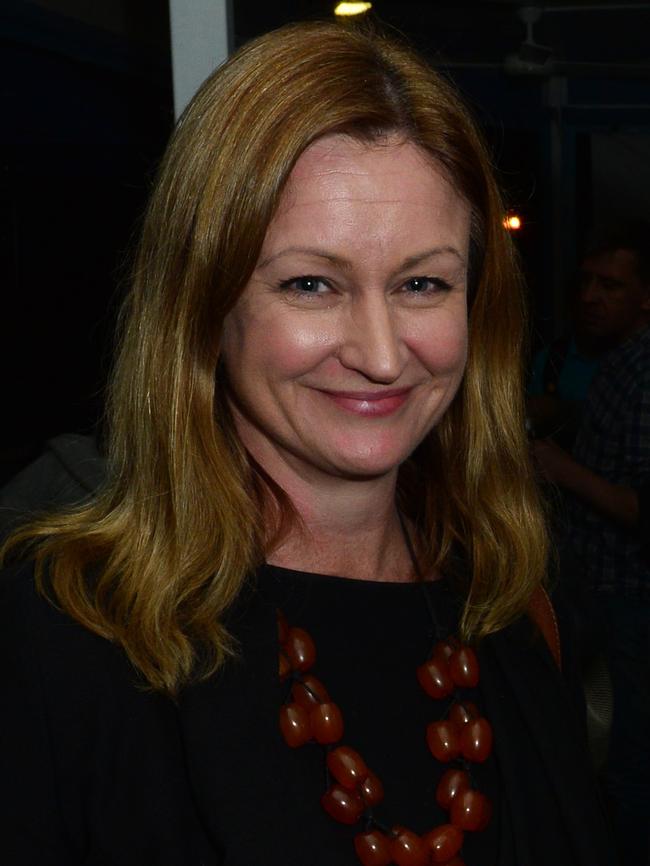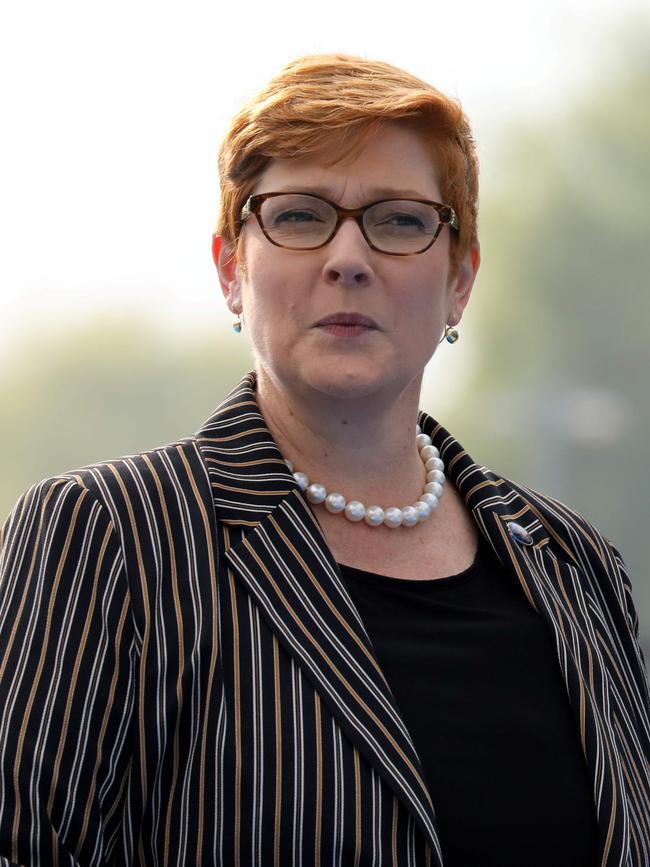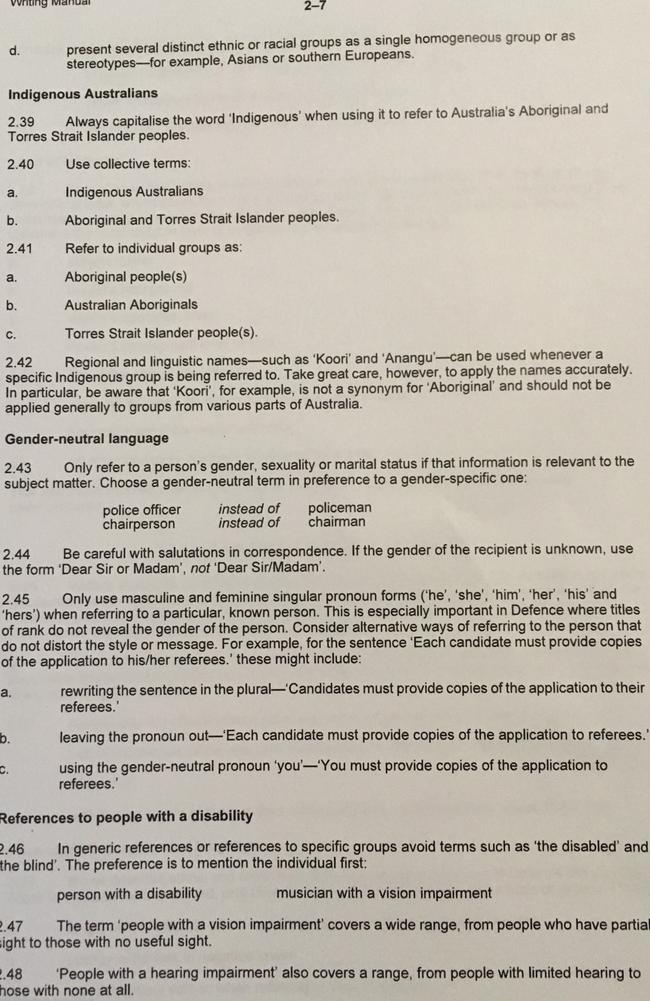Australian Defence Force told to go neutral in communications
DEFENCE top brass confirmed to a powerful parliamentary committee recently that it was working on a gender policy that would draw on an already established guide that tells soldiers to avoid words like “him” and “her” in case it offends peers.

NSW
Don't miss out on the headlines from NSW. Followed categories will be added to My News.
DEFENCE top brass told Parliament that it was working on a “definite” gender policy to be released soon that would specifically draw on a “guide” which tells soldiers they shouldn’t use words like “him” and “her” in case it offends some peers.
It comes as The Daily Telegraph has obtained another official Defence policy document dating back to 2013, the current Australian Defence Force Writing Manual, that urges personnel to “consider alternative ways” of referring to colleagues other than “masculine and feminine singular pronouns”. The document says staff could rewrite such sentences “in the plural” using “their” instead.
Staff are also instructed to “leave the pronoun out” and use the “gender-neutral” pronoun “you” in formal communications.
The Defence Force’s director of people and strategy Justine Greig told the Senate estimates committee in May that Defence was in the process of drafting a formal “policy piece” based on “material available as guides to managers and leaders in the organisation”.

Ms Greig also said the language guide had become “mandatory” training for “commanders” and “leadership” within the Defence Force.
The Daily Telegraph yesterday revealed that the 2017 ADFA Staff LGBTI Guide had warned solders in training to use “gender-neutral language” or risk being “dealt with immediately”.
Ms Greig referred to the guide as a “good example” of what managers used now while the final policy was being drafted.
“We are yet to finalise a definite policy — that policy piece is still a work in progress — but we are consulting on that piece with various communities, in fact, as I speak,” she told Parliament in May.
“Today, one good example of that is we currently have, at the Australian Defence Force Academy, a guide for managers in terms of how to lead and be inclusive for people that have various gender orientations.
“We totally refreshed our mandatory workplace behaviour training. That is mandatory across the ADF and APS workforce.
“We have really pushed now towards a place where commanders — leaders — are being held to account, not only for a positive workplace climate but an inclusive one.”

Defence Minister Marise Payne last night said Defence was “developing a policy framework for the administration of transgender, transitioning and non-binary and other gender-diverse members”.
However, she claimed this would “not include directions regarding the use of gender-neutral language”.
She also admitted that the LGBTI guide was official.
“The guide does suggest that if you are talking about relationships you might want to use a broader term,” she said on 2GB yesterday.

“There is a range of material around the Defence organisation engaging in the contemporary social environment so there are many publications and ADFA engages with very young Australians who are coming there as cadets.”
Despite Ms Payne’s insistence soldiers were not being formally ordered to use gender-neutral language, the confidential Defence Force writing guide obtained yesterday explained the restrictions in significant detail.
The document tells soldiers to “choose a gender-neutral term in preference to a gender-specific one” in formal communication.
It also warns soldiers to say “police officer” instead of “policeman” and “chairperson” instead of “chairman”.
The document teaches soldiers how to write in gender-neutral language without being grammatically incorrect by “leaving the pronoun out”.
Originally published as Australian Defence Force told to go neutral in communications


